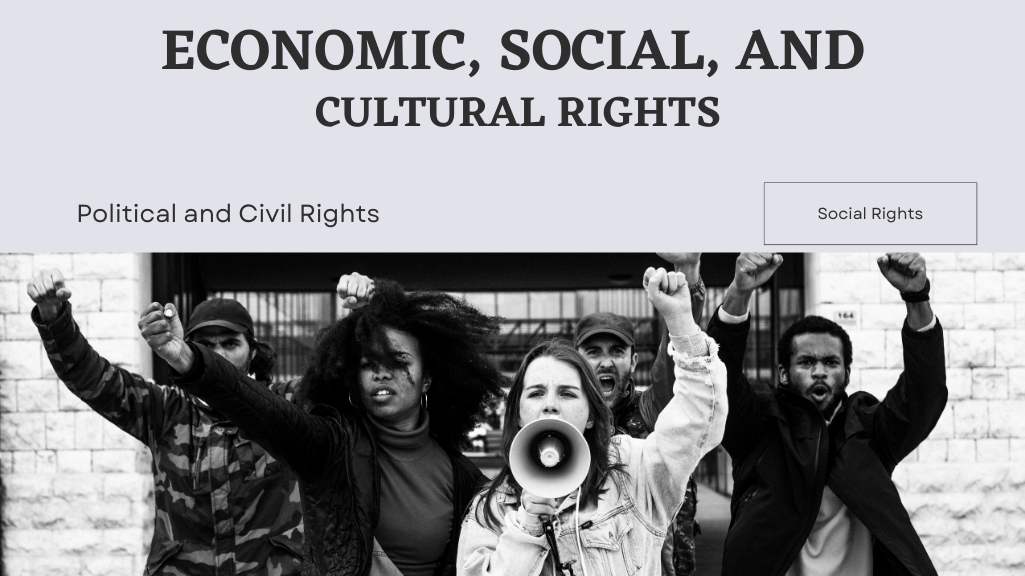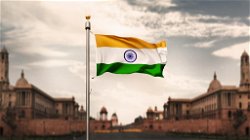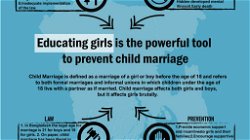Economic, social, and cultural rights: Human rights in developing countries
Steffan Addison
. 3 min read
The United Nations has been largely responsible for raising awareness about human rights among the general public and the various peoples of the world. This is one of the organization's most significant achievements. States took an oath in the name of their peoples and reaffirmed their faith in fundamental human rights as well as the dignity and worth of the human person. This was the first time in the history of the world that this had ever been done. One of the reasons why the United Nations was founded in the first place was to advance and encourage people to respect human rights.

Regarding the Situation of Human Rights in Developing Countries
Everyone has the individual and collective responsibility to work toward achieving development as it is a fundamental human right. According to the ground-breaking United Nations Declaration on the Right to Development, which was proclaimed in 1986, everyone has the "right to participate in, contribute to, and enjoy economic, social, cultural, and political development," in which all human rights and fundamental freedoms can be fully realized. This right was granted in the declaration.
The following is a list of the fundamental components that make up the right to development
Development with an emphasis on people: According to the Declaration, "the human person" should be regarded as the primary focus, participant, and beneficiary of development.
An approach that is centered on human rights: The Declaration stipulates that development must be carried out "in such a way that all human rights and fundamental freedoms can be fully realized."
Participation: Individuals and entire populations are urged to engage in "active, free, and meaningful participation" in the development process by the Declaration.
Equity: The Declaration emphasizes the significance of the "fair distribution of the benefits" of development as an essential component of sustainable growth.
Human Rights and Development
Within the United Nations, the United Nations Development Programme (UNDP) is the organization that takes the lead in implementing an approach to development that is centered on human rights. This strategy is the focal point of the organization's policy, programming, and support for capacity development.
1. It encourages all actors to adopt an approach that is based on human rights in the process of tailoring and customizing the MDG targets to the local context.
2. Places an emphasis on the capabilities of those with duties to fulfill their obligations to respect, protect, and fulfill rights, as well as the capabilities of those with rights to assert their claims to those rights.
3. Strengthens the complementary relationship between the fight against poverty and democratic governance.
4. Participates in the work of United Nations Treaty Bodies; in particular, makes an effort to incorporate into the development of its program a selection of relevant recommendations that result from periodic reviews
Indivisible and interdependent
Each and every human right is inextricably linked to and dependent upon the others. This indicates that one set of rights cannot be fully enjoyed without the presence of the other set of rights. For instance, when it comes to exercising economic, social, and cultural rights, progress made in civil and political rights makes it much simpler to do so.
Equal and non-discriminatory
The Universal Declaration of Human Rights (UDHR) states, in its first article, that "All human beings are born free and equal in dignity and rights." The prohibition of discrimination, which can be found in Article 2, is what makes this equality a reality.
Rights to one's economic, social, and cultural environment
In 1976, the United Nations General Assembly ratified the International Covenant on Economic, Social, and Cultural Rights. The right to work in conditions that are just and favorable; the right to social protection; the right to an adequate standard of living; and the right to the highest attainable standards of physical and mental well-being; the right to education and the enjoyment of the benefits of cultural freedom and scientific progress are some of the human rights that the Covenant seeks to promote and protect.
Civil liberties and political freedoms
Freedom of movement, equality before the law, the right to a fair trial and the presumption of innocence, freedom of thought, conscience, and religion, freedom of opinion and expression.
- The right to freedom of expression, which is infringed upon when access to ideas is restricted and when freedom of the press is constrained.
- The right to privacy, which is violated when an intrusion is made into a person's sexual life or personal data The right to asylum, which is violated when an individual is deported to a country where their lives are in danger
- The right to a fair trial and due process, which is violated when the court is not impartial and when there are excessive delays in the proceedings
- The right to freedom of religion, which is infringed upon whenever a person is persecuted for adhering to their beliefs or coerced into practicing a different faith.
- The right to be free from discrimination, which is violated when characteristics such as one's race, gender, religion, etc. are used to justify actions such as being fired from a job.
More Stories from
India's New Parliament Bhavan: An Icon of Modernity and Functionality
The New Parliament Bhavan is a cutting-edge architectural marvel in New Delhi, India, serving as the modernized hub of the nation's democracy.
Child Marriage: A Global Challenge to Childhood Rights and Development
This article sheds light on the pervasive issue of child marriage, where millions of young girls and boys are married off before the age of 18.
Mastering Social Etiquette: Essential Tips for Polished Social Skills
It emphasizes the importance of being knowledgeable about social etiquette and paying attention to subtleties to avoid awkward situations.





.png?width=40&aspect_ratio=1:1)




.png?width=40&aspect_ratio=1:1)